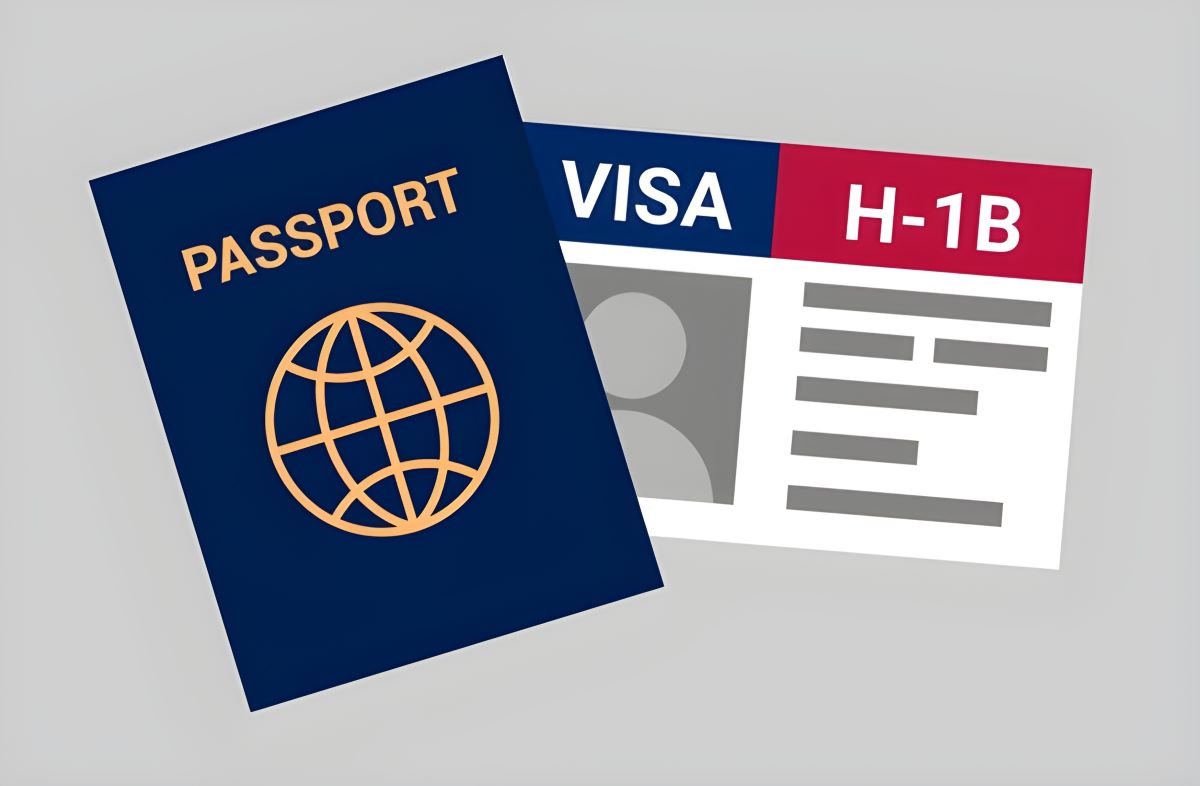Nasscom Worries Over Proposed H-1B Visa Changes 2023
The H-1B visa program has long been a cornerstone of the United States’ approach to attracting skilled foreign workers in various fields such as technology, science, engineering, and mathematics.
However, recent proposals for the modernization of the H-1B visa program have raised concerns among various stakeholders, including Nasscom, the National Association of Software and Service Companies, which represents the Indian IT industry.

The National Association of Software and Service Companies (NASSCOM), representing India’s IT industry, has expressed its concerns over certain sections of the proposed H-1B visa modernization program. The H-1B visa program, as many are aware, allows U.S. employers to temporarily hire foreign workers in specialty occupations, with the technology sector being one of its primary beneficiaries.
The H-1B visa program allows U.S. employers to hire foreign nationals for specialized roles when they cannot find qualified American workers. It has been instrumental in filling skill gaps in the U.S. job market and driving innovation and economic growth. However, the program has faced criticism over the years for alleged misuse and abuse, leading to various reforms and discussions on its modernization.
The H-1B visa program has long been a pathway for talented IT professionals, primarily from India, to work in the U.S. However, periodic reviews, changes, and proposals in the program, sometimes driven by concerns about American jobs or misuse of the visa, have kept it in the limelight.

Nasscom has expressed concerns over a specific section of the proposed H-1B visa modernization program, which revolves around the allocation of H-1B visas through a wage-based lottery system. Here are the key concerns raised by Nasscom:
- Wage-Based Lottery System:
The proposed modernization program suggests replacing the current random lottery system with a wage-based selection process. Under this system, H-1B visas would be allocated to employers offering higher wages to foreign workers. Nasscom argues that this approach could disproportionately favor large corporations with greater financial resources, potentially leaving smaller companies and startups at a disadvantage.
- Impact on Skilled Workers:
Nasscom is concerned that the wage-based lottery system could have adverse consequences for skilled foreign workers, particularly those from India who have been a significant part of the H-1B visa program’s beneficiary pool. The system may prioritize high-wage roles, making it challenging for individuals in lower-wage occupations to secure visas, even if they possess valuable skills and expertise.
- Disruption to the IT Industry:
The Indian IT industry has been a major contributor to the U.S. economy, providing technology solutions and creating jobs for both American and foreign workers. Nasscom believes that the proposed changes may disrupt the industry’s ability to continue its growth and collaboration with U.S. companies.
- Potential Impact on Innovation:
Restricting access to the H-1B visa program based solely on wages could hinder the flow of innovative talent to the United States. The IT industry, in particular, relies on a diverse pool of skilled professionals, and Nasscom argues that limiting the program in this way might stifle innovation and technological advancement.
- Alternatives and Improvements:
Nasscom suggests that, instead of solely focusing on wage levels, the H-1B program should be modernized to address concerns about misuse, protect the rights of foreign workers, and promote fairness. They propose that the U.S. government explore alternative reforms that maintain the program’s balance and continue to attract the best global talent.

The proposed changes recommend a priority system for visa allocation based on wages rather than the current lottery system. NASSCOM feels this might disadvantage smaller companies and startups that may not be able to offer higher wages compared to large tech giants. It could limit the diversity of companies benefiting from the H-1B visa system.
The proposal suggests companies provide more comprehensive documentation to prove the “employer-employee relationship”. While this might be aimed at curbing potential misuse, NASSCOM argues that it could result in cumbersome processes and could affect genuine applications negatively.
In the past, there has been a significant increase in the denial rates for H-1B visa applications, especially for IT services companies. Any change that could exacerbate this trend is a concern for NASSCOM, as it affects the ability of its member companies to service clients in the U.S.
There’s a move to further narrow down the definition of “specialty occupations” which could reduce the number of eligible positions under the H-1B category. This could affect the IT industry, which typically has a diverse range of roles that are critical for project implementation.

IT professionals might face challenges in moving to the U.S., potentially affecting the profitability and growth of IT companies. Companies might focus on hiring local talent, leading to increased costs. This could also result in offshoring more projects, affecting the U.S. IT services market.
Limiting the influx of skilled workers could also hamper innovation and progress in the U.S. technology sector.
The proposed H-1B visa modernization program has generated significant debate, with Nasscom expressing concerns about the wage-based lottery system.
While there is a need to address issues of misuse and reform the program to ensure fairness, Nasscom’s concerns highlight the potential drawbacks of overemphasizing wage levels in the allocation of visas.
Striking the right balance between attracting skilled talent and safeguarding domestic job opportunities is crucial.

The ongoing discussions on H-1B visa reforms will likely continue to evolve as stakeholders work towards a more equitable and efficient system that benefits both the U.S. economy and global talent.
The H-1B visa program has always been a contentious issue, balancing between protecting American jobs and ensuring the U.S. remains a hub of innovation and technological progress.

NASSCOM’s concerns highlight the need for a thoughtful approach, ensuring that the program’s modernization benefits all stakeholders – the U.S. economy, its IT sector, and the global talent pool.
As discussions continue, a collaborative approach involving all stakeholders might be the best way forward.



